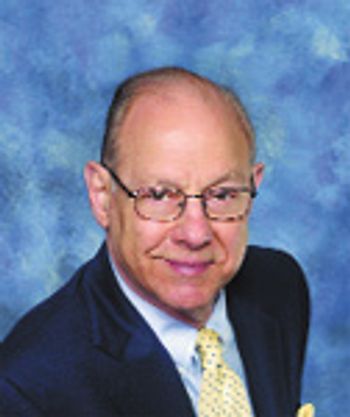
Think twice before laying off good employees.

In the course of the late Bob Levoy's career, he conducted thousands of management seminars for business and professional groups, Fortune 500 companies, and leading colleges and universities throughout North America and overseas. Among them were hundreds of veterinary medical associations. Bob holds three degrees from the University of Connecticut and Columbia University and has written seven best-selling books including 101 Secrets of a High Performance Veterinary Practice and 222 Secrets of Hiring, Managing and Retaining Great Employees in Healthcare Practices. Bob hosted a jazz radio program in the New York market (as Bob Collins) for more than 12 years and was a volunteer reader for Recordings for the Blind and Dyslexic for more than 20 years. He passed away in 2014.

Think twice before laying off good employees.

Hint: The carrot and the stick work for only so long.

Calling clients can be a great revenue builder.

It takes effort to position your practice as a top-notch facility.

As gas prices stay steep, gas cards are a great way to reward employees.

To communicate to your clients, you must be knowledgeable on the issue.

New book tells pet owners to ask medical questions at your practice.

Complete this quiz-and size up your salary smarts.

Believe it or not, complaints can bond pet owners to your practice-if you handle them effectively.

Involving your team members in the process is a better way to hire.

The tales clients tell can poison or profit your practice.

A problem more disruptive and costly than absenteeism, "presenteeism" occurs when contagiously sick employees show up for work.

If employees can handle various tasks, then you can shift people in and out of jobs as needed-without calling in temporary workers, running up overtime costs, or stinting on client services.

It's probably hard to believe there's anything about your practice that irritates your clients that you don't already know about. But consider this recently discovered problem at Montefiore Medical Center in New York City. It started with a survey that hospital administrators gave to patients when they were sent home from the hospital.

An effective e-mail program gives your practice a high-tech image, says author Ralph Laurie.

It's no secret that staff salaries are the biggest expense at most practices. At the same time, your team is your most valuable asset. How do you balance these two realities?

Is your practice easy to do business with? How can you achieve this goal? Here are some ideas.

"Celebrating makes people feel like winners and creates an atmosphere of recognition and positive energy." ... say Jack and Suzy Welch, co-authors of Winning (Collins, 2005).

Learn what makes team members tick with this form.

You can sense whether employees are happy in an office the moment you walk in the front door. The most noticeable characteristic is the level of energy and emotional commitment that employees exhibit. Even a casual observer can feel the difference when walking the halls.

A Mayo Clinic study finds that behavior, not skill, is the key to positive patient perception.

The devil is in the details. So what are your clients noticing about your practice and team members?

Know the difference between advertising and public relations to maximize your results.

Shine a light on your team members to ensure they feel appreciated and don't fade into the woodwork.

Disclosing the practice's financial information helps team members see the bigger picture. But is this approach right for your practice?

One of the easiest, lowest-cost, and most practical ways to learn about management is from Other People's Mistakes.

Competing on price is the biggest slip-up you can make. Here's why.

This veterinarian's passion for practice-and helicopters-lets him fill a unique niche.

Countless companion animals suffered during last year's hurricane season and many lost their lives because of a lack of planning. Help your clients think ahead about emergencies.

If your success is starting to slip, it could be that you no longer offer the care you so eagerly gave clients in the early days of practice. But it's not too late to get back on track.